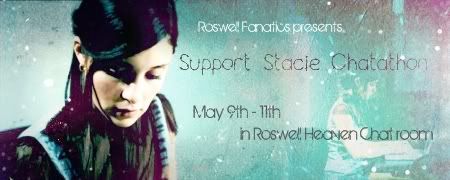Common Grammatical Errors
Moderators: ISLANDGIRL5, Forum Moderators
Here's two that Microsoft Word and I never seem to agree on. I'd love to see what some of the grammer experts have to say on this one.
using comma vs semi-colon.
I was always taught that commas go where the speaker would naturally take a breath or pause. (Ignoring the obvious of separating lists) But Word seems to want to use a semi-colon in many of those places. Where as, I was also taught the semi-colon is used to separate small complete phrases.
using ... vs —
I've been recently reading books by an author that uses — excessively, it drives me nuts. I tend to use ... quite a bit. When is which correct?
using comma vs semi-colon.
I was always taught that commas go where the speaker would naturally take a breath or pause. (Ignoring the obvious of separating lists) But Word seems to want to use a semi-colon in many of those places. Where as, I was also taught the semi-colon is used to separate small complete phrases.
using ... vs —
I've been recently reading books by an author that uses — excessively, it drives me nuts. I tend to use ... quite a bit. When is which correct?
First of all, awesome thread.
I can never draw a real line between the two, though, because I tend to rely on how the sentence looks like or sounds.
I never really thought about this before. I usually use '. . .' when it's a long pause or when a thought is trailing off. Well, somewhere along those lines. As for '—', I put it in when something happens out of the blue or to break a thought off suddenly. I guess it's just because of how they look.Zendorox wrote:using ... vs —
I've been recently reading books by an author that uses — excessively, it drives me nuts. I tend to use ... quite a bit. When is which correct?
I can never draw a real line between the two, though, because I tend to rely on how the sentence looks like or sounds.
- maxandliz4ever1357
- Obsessed Roswellian
- Posts: 686
- Joined: Tue Jan 25, 2005 5:40 pm
- Location: Backpacking through Europe (ok so I'm not, but I wish I were)
That's usually what I do, too. I use the '--' if someone breaks off while saying something, but I'm not sure how to incorporate that into something other than dialogue. Actually, I've been wondering about that a lot lately.I never really thought about this before. I usually use '. . .' when it's a long pause or when a thought is trailing off. Well, somewhere along those lines. As for '—', I put it in when something happens out of the blue or to break a thought off suddenly. I guess it's just because of how they look.
I was taught that a semicolon is used to connect two sentences that otherwise would need a period or a linking verb. Here's what a web page had to say about them:I was always taught that commas go where the speaker would naturally take a breath or pause. (Ignoring the obvious of separating lists) But Word seems to want to use a semi-colon in many of those places. Where as, I was also taught the semi-colon is used to separate small complete phrases.
From Guide to Grammar and Style.In this century, at least, the semicolon has only two common uses: to separate the items in a list after a colon (as in "The following books will be covered on the midterm: the Odyssey, through book 12; passages from Ovid's Metamorphoses; and the selections from Chaucer"), and to separate two independent clauses in one sentence (as in "Shakespeare's comedies seem natural; his tragedies seem forced"). The first is obvious enough. For the second use, a simple test is this: if you can use a period and a new sentence, you can use a semicolon. In this second use, the semicolon can always be replaced by a period and a new sentence. In the example, "Shakespeare's comedies seem natural. His tragedies seem forced" is correct, so a semicolon can be used. It's unsafe to use a semicolon anywhere else.
<center> I was terrified and would you mind if I sat next to you and watched you smile? </center>
- 2004
- Enthusiastic Roswellian
- Posts: 24
- Joined: Tue Oct 26, 2004 6:27 am
- Location: Florida, but I wish I was in Texas.
I have a pet peeve when reading fanfic. It's hard to understand the flow of the story when the next paragraph just jumps to a new scene. It's a lot easier to read when there is a break in the text not just extra space but ****** or --------. I feel better now.
Edited: It bugs me when is/are are misused or in/on.
Edited: It bugs me when is/are are misused or in/on.
- Applebylicious
- Addicted Roswellian
- Posts: 425
- Joined: Fri Sep 06, 2002 8:45 pm
To its or not to it's, that is the question.
So I'm confused. When am I supposed to insert these?
When you're writing "IT'S," is it the proprietary version? For example:
It's front fender was torn from the accident.
And is "ITS" supposed to be a contraction of "it is?" For example:
Its only proper that we greet our guests at the door.
So which is it? Can someone please clarify because MS Word is driving me nuts. It keeps changing these when I type.
So I'm confused. When am I supposed to insert these?
When you're writing "IT'S," is it the proprietary version? For example:
It's front fender was torn from the accident.
And is "ITS" supposed to be a contraction of "it is?" For example:
Its only proper that we greet our guests at the door.
So which is it? Can someone please clarify because MS Word is driving me nuts. It keeps changing these when I type.
<center> </center>
</center>
 </center>
</center>- Raychelxluscious
- Addicted Roswellian
- Posts: 203
- Joined: Tue Nov 23, 2004 11:15 pm
- Location: Started in WV, ending in FL
Lolita wrote:To its or not to it's, that is the question.
So I'm confused. When am I supposed to insert these?
When you're writing "IT'S," is it the proprietary version? For example:
It's front fender was torn from the accident.
And is "ITS" supposed to be a contraction of "it is?" For example:
Its only proper that we greet our guests at the door.
So which is it? Can someone please clarify because MS Word is driving me nuts. It keeps changing these when I type.
I'm pretty sure you have it the opposite.
It's is the contraction of "it is".
Its would be used to show possession. "The cat had its tail slammed in the door."
I'm *pretty* sure that's correct.
Raychel
writing is a socially accepted form of schizophrenia
Roswell, New Mexico S1 Watch Party
Roswell, New Mexico S1 Watch Party
- Applebylicious
- Addicted Roswellian
- Posts: 425
- Joined: Fri Sep 06, 2002 8:45 pm
- VivaLasVegas
- Enthusiastic Roswellian
- Posts: 7
- Joined: Sat Jul 19, 2003 12:43 am
- Location: Los Angeles County
One of my grammar pet peeves is apostrophe use. Some writers tend to stick random apostrophes in any words ending in "s"...
Examples: He ride's his bicycle. I have two cat's. The Valenti's invited Tess into their home.
Here are some REALLY REALLY common spelling errors...
Error: "Definatly" or "Definately"
Correct: "Definitely"
Error: "Irresistable"
Correct: "Irresistible"
Error: "Accidently"
Correct: "Accidentally"
Error: "Mispelled"
Correct: "Misspelled"
Examples: He ride's his bicycle. I have two cat's. The Valenti's invited Tess into their home.
Here are some REALLY REALLY common spelling errors...
Error: "Definatly" or "Definately"
Correct: "Definitely"
Error: "Irresistable"
Correct: "Irresistible"
Error: "Accidently"
Correct: "Accidentally"
Error: "Mispelled"
Correct: "Misspelled"

